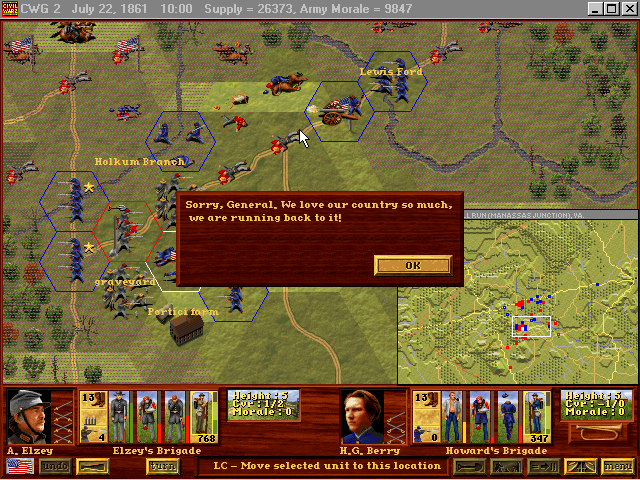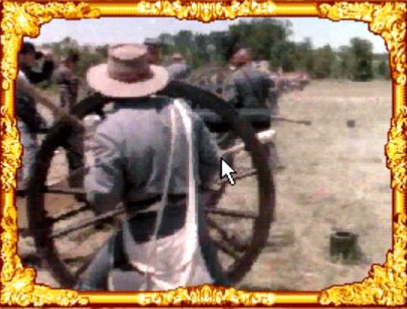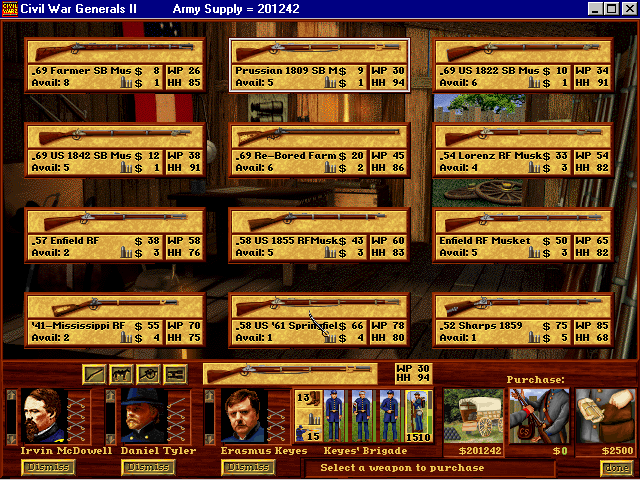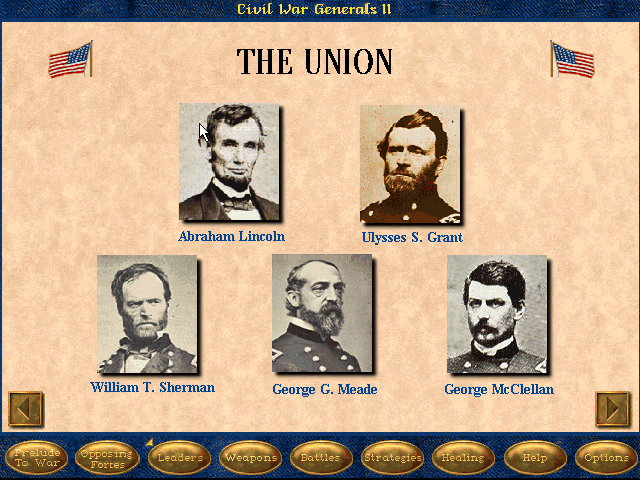- cross-posted to:
- [email protected]
- cross-posted to:
- [email protected]
I have spent about a total of ten hours playing Grant, Lee, Sherman: Civil War Generals 2 (which for my own sanity will be referred to as “CW2” from here on out), which is not nearly enough time to become an expert, but I have managed to scratch a little bit into the surface. Originally I had planned on playing Robert E. Lee: Civil War General, as that had been a game I’d spent tons of time playing as a kid. When I couldn’t get the original game on any digital storefront and my technical abilities to get it running from an abandonware website failed me, I finally went to eBay and ordered an original physical copy. When my order arrived, I was surprised to see the sequel bundled with it, and I learned with a little bit of searching that CW2 released only a year after the first game and is considered a more expanded and polished iteration. It has the same engine, same mechanics, same graphics, and even the same battle videos. What it adds are a few new unit types, UI improvements, numerous campaigns, and the ability to play each campaign as either the North or South; as opposed to the original game which only had Confederate campaigns. If you end up wanting to play these games, just skip right to CW2 as it is essentially a director’s cut or GOTY version of the original.
What is CW2 however? It is a turn based, hexmap strategy game of the US Civil War. There are historical battles presented for stand alone play, or campaigns which string together multiple battles. Unit types include infantry, skirmishers, artillery, cavalry, engineers, frigates, gunboats, and field headquarters. Most units have two formations, one for fighting and one for traveling. Catching an enemy, or being caught yourself, in a traveling formation with an attack can be devastating. All units have three important factors relating to manpower: Organization, health, and morale. Each factor is represented with a small intuitive picture in the unit’s information panel. If the soldier represented looks in good shape, the stats are good. If not, things will be rough.

This combination of charming presentation with brutal gameplay implications is found throughout the game. A unit that has broken ranks and is fleeing will have a characterful depiction on the map, and you click on them to attempt to give them orders you’ll get a snarky reply textbox.

When units meet for battle the game will a play a short video. Rather than CGI, the videos are live action clips of actual Civil War reenactments. There is something quaint about a game published by a major studio using camcorder footage to show off a battle. All of that is fun, but when you find yourself 30 turns in to a brutal slugfest over a series of bridges and your men are dead, dying, or routed, the game shows that it has bite.

Scenarios are often designed to mimic history rather than designed to give the player much of a chance of assuring a path to major victory. I played First Battle of Bull Run in command of Union forces. In real life the battle was an unexpected failure for the Union, and even with my knowledge to not be overconfident, I only managed to turn what CW2 described as a “major defeat” into a “minor defeat”. While my generalship was far from perfect, I submit that the game has no problems loading scenarios that will frustrate, in a good way, even those who are familiar with the genre. I mean look at this bloody battlefield.

In a campaign, after battles units will recover wounded troops from hospitals and receive reinforcements to their ranks. Depending on that amount of fighting a unit has seen, they will gain valuable veteran increases to their morale and organization. As an additional way to increase the fighting ability of the units, the player has the choice of dismissing under performing unit commanders in the hopes of finding someone better. When it comes to hardware, every unit type has a variety of weapons to choose from to rearm with. Be careful, especially as a Confederate player to not just grab whatever the best, most high value weapon is within reach as the more expensive weapons tend to have higher rates of fire, which translates into more expense to keep the unit supplied with ammunition. Running out of supplies will turn the finest repeating rifle into a glorified club and make the unit easy pickings.

When it comes to sound, this is a mid-1990s game. The sound effects seem to be either a member of the development team reading a line in their best attempt at a period accent, or battle noises pulled from the reenactment videos. The music is subtly addictive however. It is compressed, but I found The Battle Hymn Of The Republic tune to be a surprisingly hard earworm to shake.
The game feels like it was made by a team that was really in love with the Civil War. There is a free included program presenting the history of the war going over everything from the leaders, to the weapons, to the battles. It is all fully narrated, much like the in game dialog it is competently, but obviously done by a developer rather than a professional voice actor. To today’s eyes and ears the presentation might seem lacking compared to what can be found on Wikipedia in a few seconds, but CW2 was released four years before Wikipedia existed, making the research that went into it even more of a bonus for a game of its era.

CW2 still holds up as a surprisingly mechanically crunchy game with a presentation that is colorful and clear. Absolutely worth playing for anyone with an interest in turn based strategy wargames.
Same post saved on my blog. (There’s other stuff too!)


Gold star content. I don’t know why but this reminded me of my experience playing Sudden Strike for the first time.